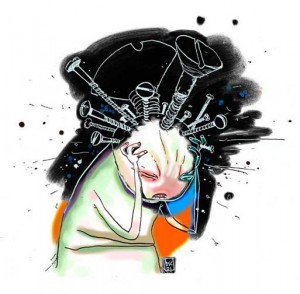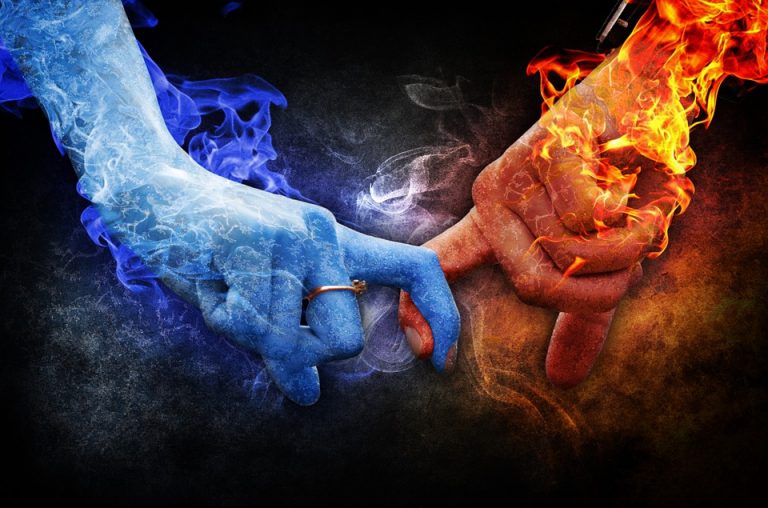Stop the Hurting
Pain is inevitable. Suffering is optional. – M. Kathleen Casey
Pain—what an unpleasant sensation. If happiness is the ultimate good, then pain is the ultimate bad. However, if pain really is this unequivocally negative experience, why do we even have it?
From an evolutionary standpoint, pain serves to remind us something’s wrong. Physically speaking, it alerts us to impending damage to our body if we persist with a certain behavior or don’t address a particular wound.
But pain also comes in another form: social pain. Whether it is the loss of a loved one or the ending of a relationship, the severity of this type of pain often matches or exceeds physical pain.

In the brain, both social and physical pain are processed in very similar regions, and because of this, Tyleonl, a drug typically used for physical pain, can also blunt social pain, too. Still, a key difference between the two is the lasting effect.
For example, if you tried to recall the pain of breaking a bone, you may be able to elicit faint echoes of what it felt like. However, if you tried to recall an instance of losing a social connection, you can vividly relive the emotional distress associated with it.
To again speak evolutionarily, social pain is more important in this regard. Because our very survival depended upon the success of the tribe and our social connections, the pain associated with these kinds of losses must necessarily be stronger.
In fact, the pain associated with rejection is so powerful that when scientists map the brain, the image looks almost identical to someone experiencing the throes of drug withdrawal.
Even with their differences, however, both physical and social pain share a similar process of experience.
First, you must attend to or realize the pain. If you’re not paying attention to it—distracting yourself with friends, exercising—you are less apt to feel it.
Second, you must interpret the pain. Although you may believe pain is uncontrollable, the conscious mind can construe the pain to make it more severe—“this physical pain means I’m going to die”—or more amenable—“I have other friends I can spend time with.”
And third, pain depends upon our expectation for recovery. If we believe we should feel better in a day, when really it will take weeks to recover, the intensity of the pain can be artificially amplified.
Because pain is a subjective occurrence, one of the most hurtful things is to have your pain invalidated. However, from a biological perspective, regardless of the pain’s origin—you lost your job, your dropped your ice cream—the same reduction of serotonin and dopamine (the neurotransmitters associated with pleasure) can occur in the brain.
And while you may want to claim it’s impossible that someone experiencing something as trivial as a breakup could hurt that bad, as long as the quantities of serotonin and dopamine are as low as they are, the pain that is felt, that is experienced is just as objectively severe as anything else.
Painfully,
jdt
Linton, S. & Shaw, W. (2011). Impact of Psychological Factors in the Experience of Pain. Journal of American Physical Therapy Association. 91(5). 700 – 11
http://www.psychologytoday.com/articles/201012/the-thoroughly-modern-guide-breakups








Jake
Why do most males ignore pain (to a degree) and not seek treatment. Is it a Mars thing?
Social pain? man up!
Vince
Great question, Vince!
One of the main reasons men ignore pain is because we (I being a man) have been socialized to conceal it. From a young age we’re taught “boys don’t cry” or always told “toughen up.” Thus, to seek support when in pain admits to the fact that we need help. And because men are expected to be unshakable, it goes against our social identity to admit to pain.
In essence, it’s not a biological difference but a socialized one. (Whereas women, on the other hand, are socially expected to express their pain.)
“Sticks and stones can break my bones, but words will never hurt me”.
Depending of the context the above quote, a larger fallacy has never been spoken.
Words spoken in the “heat of the battle”, a bully pummeling opprobrious epithets at his target, a person of respect continually telling you that you are a failure a loser you will never succeed at anything is far more damaging in some circumstances then breaking a bone.
For all of the physical pain a woman experiences giving birth you would think she would never want to have another child, but she does.
The child who is chastised daily of his “stupidity”, their ineptness, their looks, will and can be marred for the rest of their life.
Pain is pain, but it seems that most physiological pain can last indefinitely, while most physical pain is a moment in time.
Gosh, I’m sorry I didn’t respond to this sooner!
I think you’re absolutely right about the fallacy of that age old statement. While it tries to convey that we *shouldn’t* let negative words hurt us, it doesn’t consider the fact that they really are powerful.
We, at our core, are products of our genes and our environment. And if that environment weighs negatively upon this, then we are bound to twist beneath that vicious pressure.
Our minds interact very strongly with our bodies, and whereas the body can heal itself unconsciously, intra-psychic damage requires conscious correction.